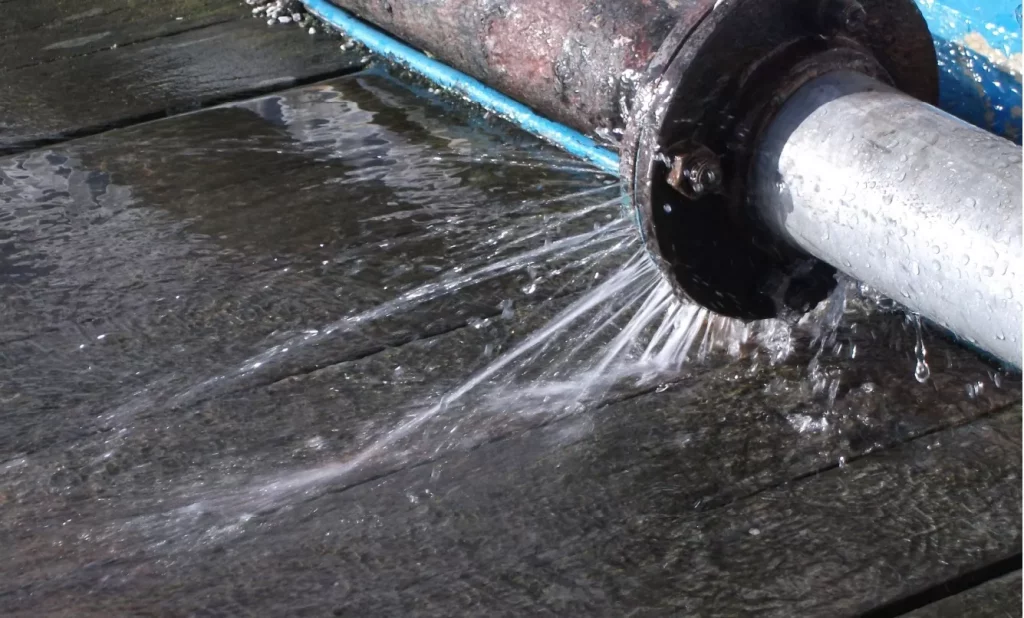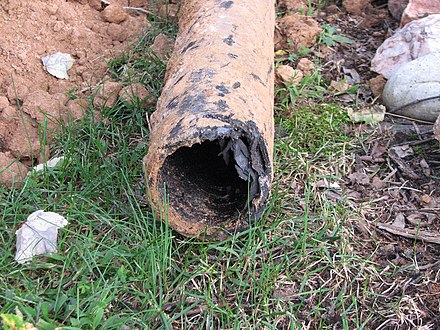TSO And Finance Committee Recommend Removing Town Ownership Of Sewer And Water Lines From New Regulations

Photo: The Pipe Doctor. Creative Commons
Report On The Meeting Of The Town Services And Outreach Committee Meeting, January 12, 2023
The meeting was held on Zoom and was recorded.
Present
Councilors: Anika Lopes (Chair, District 4), Dorothy Pam (District 3), Ana Devlin Gauthier (District 5), Andy Steinberg (at large). Absent: Shalini Bahl-Milne (District 5)
Staff: Amy Rusiecki (Assistant Superintendent of Public Works), Paul Bockelman (Town Manager), Kelly Miller (note taker)
The meeting was devoted to consideration of the question of who will own and be responsible for repairs to and maintenance of water and sewer lines in Amherst under the new bylaws. The town has been working on revising its sewer and water regulations for at least a couple of years and perhaps the most dramatic innovation in the proposed new bylaws is the proposal that the town assume ownership of water and sewer lines from the street to the property line. Currently, homeowners are responsible for maintenance and repair of these lines from the home to the main. Repairs to such lines, particularly in instances where the pipes are very old and deteriorating, can cost tens of thousands of dollars, and those without special insurance to cover such repairs can find themselves in financial crisis because of necessary repairs.
TSO voted unanimously to recommend to the Town Council that the change in ownership of water and sewer lines be removed from the new water and sewer bylaws and that the change in ownership be delayed for two years until January, 2025. Ana Devlin Gauthier, who offered the motion, described the proposed change in ownership as a good idea that has come up at a bad time. This follows a vote by the Finance Committee on January 10 to recommend that the proposal to transfer ownership of the lines be removed from the new bylaws and that it come before the Town Council for reconsideration at a later date. Previously, Finance Director Sean Mangano recommended exclusion of town ownership of water and sewer lines, because of the substantial impact it would have on water and sewer rates.
Councilors voiced concern about the increase in water bills that would be necessary to finance the change. If the town assumes ownership, it would undertake pre-emptive repair work in order to keep the necessary work manageable and to help control costs (e.g possibly by repairing whole sections of line at the same time in neighborhoods where degrading pipe is a problem). For example, Dorothy Pam suggested that the town could undertake prioritizing work on “orangeburg pipes”, pipes manufactured of bituminous fiber between the 1860s to the 1970s, and which severely degrade with age. In Amherst, many of these pipes are concentrated in the center of town and Echo Hill. Water bills are expected to increase substantially next year to help cover the costs of the Centennial Water Treatment Plant repair and for the purchase of a gravity belt thickener that is needed to concentrate sewage sludge before it is trucked away. Rusiecki estimated that a shift in ownership of water and sewer lines to the town would likely add another $50 to the average water bill and $100 to the average sewer bill. Mangano estimated that under town ownership that town would likely be responsible for 100-200 repairs each to water and sewer lines annually. Several councilors felt that with an increase in water and sewer bills already in the works, adding more to the bill would be a significant hardship on many residents and would not sit well with them with a potentially substantial tax increase coming before the voters in May with the elementary school debt exclusion override.

Pam argued forcefully for sticking with the change in ownership of the lines. She pointed out that having to cover a substantial sewer line repair is beyond the means of many Amherst residents. She said that she would not have been able to cover the costs of the repair that was needed in front of her own house had she not had special insurance.
Town Manager Paul Bockelman said that he has been in discussions with private insurers to make available to Amherst residents “affordable” water and sewer line insurance which residents could purchase privately. He did not offer a timeline for when such insurance would be available or an estimated cost. Devlin Gauthier voiced concern that retaining the existing ownership arrangements could disadvantage some homeowners more than others. Bockelman said, “Switching ownership of the lines is a major public policy decision that needs careful consideration but we don’t want to hold up adopting new sewer regulations while we figure out all of the public policy implications. In the interim, we can arrange to help our residents acquire affordable insurance to cover repairs on their water and sewer lines.” He added, ”We have a couple of major infrastructure projects going on now: the Centennial Plant and the gravity belt thickener. Let’s make sure we can take care of that before we take on more pipes for which we’ll be responsible. The projected costs of this ownership change merit further study.”

Making the town the owner of the pipes from the street to the home is just a plan to shift the cost of a property’s upkeep from the property’s owner to all the property owners. If a property owner can’t afford to pay for repairs and maintenance of their own property, they can’t afford to own that property at all. If their neighbors wish to voluntarily cover those costs for them, that’s fine. Forcing everyone to pay for other people’s responsibilities is wrong.
Quoting from the article, “The town has been working on revising its sewer and water regulations for at least a couple of years and perhaps the most dramatic innovation in the proposed new bylaws is the proposal that the town assume ownership of water and sewer lines from the street to the property line [emphasis added].”
So doesn’t the (now-postponed) proposal reflect the fact that that the “property owner” here is actually the Town of Amherst?
An added $50-100 per year or bill? I would cheerfully pay $100 more a year to avoid a possible $10k water line repair. I doubt few property owners even know this is an issue. And will it work to inform all property owners about the insurance (costing what annually?) and hope they all buy it?